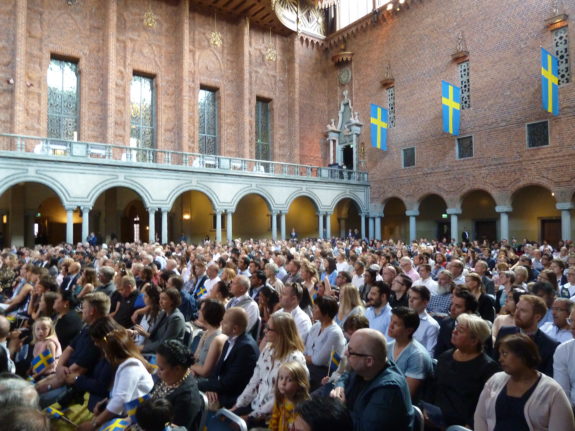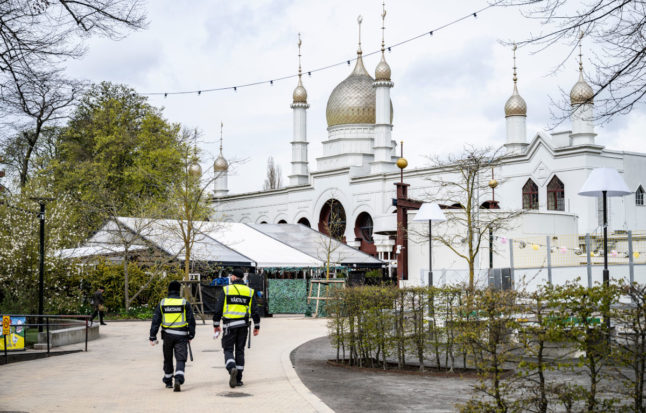New work permit law
On June 1st, the changes to Sweden’s work permit system approved by parliament in April will finally come into force. In practice, this will mean several changes, some positive, some negative, both for employers in Sweden seeking to hire internationally and for those coming to Sweden to work.
For applicants, perhaps the most important change is that, from June 1st, you will need to supply a copy of a signed employment contract (with some exceptions). Previously, you simply needed an offer of employment. The law is retroactive, so if you’re now waiting for a work permit decision, you will need to supplement your application with a signed work contract.
The new law also allows you to receive a theoretically unlimited number of work permits, without automatically making you apply for permanent residency and allows those waiting for a decision to receive visas for business trips.
The new law requests that the Migration Agency refrain from revoking work permits if their employers’ have made minor mistakes that would make it unreasonable to do so.
The Migration Agency has warned that the changes will mean (even) longer processing times.
The agency has published guidelines in English on the new law on its website here.
New talent visa
As part of the new work permit law, the government has also brought in a new nine-month talent visa for for highly educated people who want to “spend time in the country to look for work or to look into the possibility of starting a business”. Read our article on that here. According to Karl Rahm, who has helped draw up the law within the Ministry of Justice, a master’s degree (MA or MSc), should be sufficient.
Applicants will need to show that they have enough money to support themselves, with Rahm saying that this was likely to be set at the same level as the minimum salary for those applying for a work permit (currently 13,000 kronor a month, so either an income of that much, or 117,000 kronor (€11,259) in saved capital for a nine month stay.
The Migration Agency has promised to publish details of how to apply for the new visa on or just before June 1st.
Terminal 4 to reopen at Stockholm’s Arlanda Airport
On June 15th, Sweden’s state-owned airport operator Swedavia will reopen Terminal 4 at Stockholm’s Arlanda Airport, which it hopes will help bring down the long queues seen over the last month.
EU directive on Transparent and predictable working conditions comes into force
The EU’s directive on Transparent and predictable working conditions comes into force on June 20th, after being voted through the Swedish parliament earlier this year.
According to the European Commission’s website, the directive gives employees the right to “more complete information on the essential aspects of the work, to be received early by the worker, in writing, even (and unlike in Sweden previously) for jobs shorter than three weeks.
In the law passed by the Swedish parliament, it says that as a result of the directive, employers must, among other things, generally alert employees to changes in their hours at least two weeks in advance.
Roger Haddad, vice chair of the parliament’s employment committee said that for him the most important aspect of the new law is the way it will standardise the information new employees need to receive on jobs they are being offered across the European Union.
“I welcome this, it makes it easier to compare employments across the whole union and expands the labour opportunities for individuals,” he told The Local.
Järvaveckan political festival held outside Stockholm
From June 1st to June 5th, the Järvaveckan political festival will be held in Järvafältet, near the troubled suburb of Rinkeby. According to The Global Village, the arrangers, all Sweden’s party leaders except for the Sweden Democrats’ Jimmie Åkesson will give speeches at the festival.
Järvaveckan was started in 2016 as an alternative to the Almedalen festival which would bring politicians closer to parts of Sweden where many first and second-generation immigrants live.
Stockholm +50 summit outside Stockholm
UN Secretary-General António Guterres will be in Stockholm on June 2nd and June 3rd for the 50th anniversary of the United Nations Conference on the Environment in Stockholm back in 1972. The so-called Stockholm 50+ summit is being viewed as an important step on the way to the Sharm el-Sheikh Climate Change Conference in November, where the hope is that countries will update their Nationally Determined Contributions, the concrete
plans they have to reduce carbon emissions, so that global warming can be kept well below 2C.
Nato Summit in Madrid



 Please whitelist us to continue reading.
Please whitelist us to continue reading.
Member comments